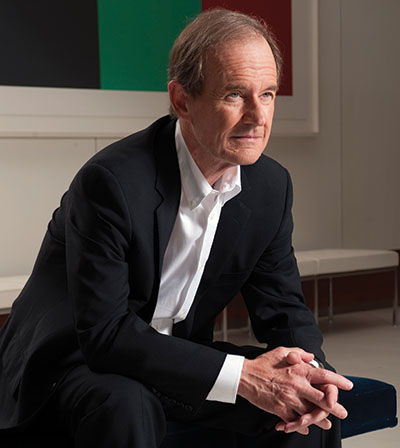Behind the Trial: Part 2 with David Boies
By Katrina Dewey | July 22, 2018 | News Articles

David Boies has been considered one of the best trial lawyers in America for more than 50 years. In this edition of Behind the Trial – Part Two of the conversation with Boies - McKool Smith principal Courtland Reichman asks about the morality play that goes on in courtrooms. Boies discusses his courtroom habits – including a strict 10 p.m. bedtime when in trial, up at 6 a.m. – the advantage in liking people from all walks of life, and for young lawyers to learn to never let them see you sweat.
Boies is a master at working with juries, largely because he genuinely likes people. With each jury selection, he is mindful of understanding what he calls the “preloads” each juror brings to the case. For example, he says, a lawyer defending a financial institution just after the 2008 financial collapse would “know that there were juror preloads about the conduct of financial institutions.” A lawyer must confront those assumptions directly and very effectively “to either reduce them, dissipate them or change them.” The lawyer needs to focus the juror instead on the importance of financial institutions to our economy and society. “The way those institutions help people, the loans they provide for college education, for a home, to help people over a particular difficult time.”
As a lawyer, Boies says, “the great advantage that you have is that you are within the four walls of the courtroom and you can change jurors’ minds, even about things they thought a lot about by getting them to see it a different way, to experience different facts. Understand different ways for approaching things.”
Boies also discusses trial consultants – including his favorite type: pollsters. “I think consultants are helpful,” he says. “For me rather than a jury consultant or a mock jury or a psychologist I’d rather have a pollster. I want to understand who these people are.
“I like to talk to people. I like to watch people, and watch other people who are trained in it talk to people.”
He also reveals that he still gets nervous when trying a case. “If you’re not nervous, you’re not sufficiently engaged. Now it’s important that you not convey that nervousness, but if you aren’t a little nervous, the stakes aren’t high enough for you – and the stakes always ought to be high enough for you in a trial to be nervous about what the outcome is.”
You can also check out Part 1 of the interview.
About the author: Katrina Dewey (katrina@lawdragon.com) is the founder and CEO of Lawdragon, which she and her partners created as the new media company for the world’s lawyers. She has written about lawyers and legal affairs for 30 years, and is a noted legal editor, creator of numerous lawyer recognition guides and expert on lawyer branding. She is based in Venice, Calif., and New York. She is also the founder of Lawdragon Campus, which covers law students and law schools. View our staff page.

